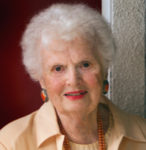By Natasha Josefowitz, ACSW, Ph.D.

LA JOLLA, California –Here we are with a lot of time on our hands. This is probably a new experience for a lot of people; it certainly is for me. So in what way can we use this time and think about things we don’t normally cogitate on?
HumanGood, the umbrella organization of our retirement community, aware of our changing needs at this time, started a Zoom book club focusing on connecting residents. We were sent the book The Gifts of Imperfection written by Brené Brown.
Reading this book made me think about who I really am; I have not thought about that question since college. Also, why do I choose to do the things I do? What reactions do I expect from others? Do I care what others think of me? Do I want or need to be liked, respected, sought after, even loved? What, if anything, do I do in order to earn any of those? Or do I? What I am really questioning is who is the authentic me?
Authenticity is letting go of who we think we are supposed to be and embracing who we truly are. How often do we only pretend to like someone, to agree, to approve, to go along, when, in fact, none of it is true. Do we think that if we showed our true selves—imperfect, inadequate, not qualified, ignorant, self-doubting—we would be unacceptable, we would not fit in? The problem with wanting to fit in is that we need to appear as that person who is acceptable to the group; we would have to adjust ourselves into that person.
According to Brené Brown, fitting in is different from belonging. We belong to our family, warts and all. We will be loved and taken care of no matter how deficient we may be. We can be our true imperfect selves with our families and hopefully with spouses and best friends. The pitfall with wanting to fit in is that we must often portray a different version of ourselves—to be acceptable to the group.
What I am really talking about is the courage to be vulnerable, to speak the truth which may be controversial, to disagree with the popular opinion, to admit to ignorance, to fears, to prejudices. I like the quote by Sir Walter Scott: “Oh, what a tangled web we weave, when first we practice to deceive!”
We could almost rank the quality of our relationships with others by seeing how authentic we can be with them and they with us. This means allowing ourselves to be heard and to be known. In order to let ourselves be known as to who we truly are, we first need to accept ourselves with all of our imperfections.
I can beat myself up for some stupid remark I made. I worry that I sound like a know-it-all when I talk about some research I am involved in. I worry that I am not minding my own business when I give unsolicited feedback. When I see a need, I tend to want to fill it. When I see a problem, I tend to want to fix it. In those times, what I really need is compassion for myself. It is okay to make mistakes; I am not perfect. Nonetheless, I am still a good person.
People who try to be perfect are actually seeking approval and trying to avoid blame or judgment. The question is at which point are we ever good enough? Even though I am not sure whether I can handle an assignment, learn a new technology, accept to lead or to speak, I still need to move ahead without letting the possibility of failure control my behavior.
How much do we need to protect ourselves and how much vulnerability are we willing to expose ourselves to? In my writings, my research, my teachings, and my consulting, I have noticed that if I am willing to share doubts, confusion, questions, the wish to be right, and the need for approval, most people may recognize the same feelings in themselves. In other words, the willingness to share one’s vulnerabilities usually resonates with others. This is where we all live—mostly in hiding.
It is this divulgence of our hidden parts of ourselves which allows us to connect in meaningful ways; this takes courage. Our survival requires human connection. Authenticity is the key to the discovery, not only of ourselves, but of others. We need to be compassionate to others as well as ourselves.
© Natasha Josefowitz. This article appeared initially in the La Jolla Village News. You may comment to natasha.josefowitz@sdjewishworld.com
It was Shakespeare, not Sir Walter Scott, who first said that
.
It’s notably said with accreditation by Walter Scott as Shakespeare has not written or said that line.